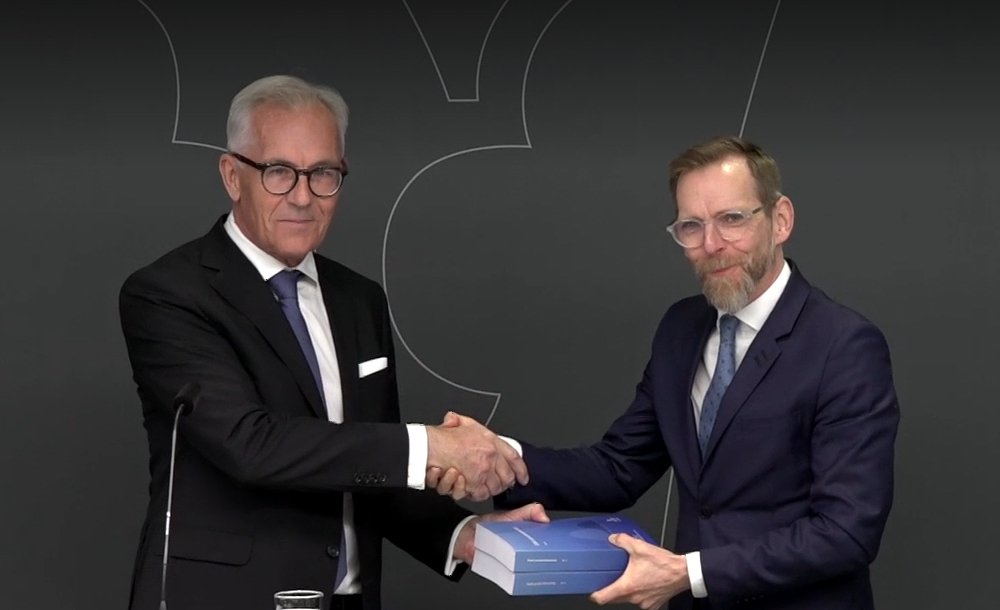Jan Albert submits proposals to improve pandemic preparedness to the government

A law to quickly limit the spread of infection in the event of a pandemic and research efforts to strengthen Sweden's pandemic preparedness and close knowledge gaps in the event of new outbreaks. This was included in the interim report from the Inquiry on Strengthening Future Infection Control, which KI Professor Jan Albert submitted to the government yesterday.
The inquiry was launched just under two years ago with the purpose of reviewing infection control regulations and better adapting them to situations with extensive spread of infection.
"The COVID-19 pandemic demonstrated that infection control legislation was not adapted to the widespread transmission of a new pandemic disease" said Minister for Social Affairs Jakob Forssmed at a press conference on 23 April, when he received the 1,200-page report.
The special investigator, Jan Albert, professor of infection control at KI, presented statistics at the press conference showing two major waves of deaths during COVID-19.
"We want to be able to stop the spread initially and reduce the risk of a strong first wave," he said.
Law enabling faster action
During the COVID-19 pandemic, temporary laws were put in place to restrict movement in society, but it took time for them to come into force. The investigators want to shorten that time with a new law for community-based infection control measures, i.e. non-medical measures. The law will enable authorities to act quickly to prescribe community-based infection control measures.
For the law to enter into force, the government must first declare the disease a public health emergency and then activate the law, according to the report. The Swedish parliament then has two weeks to finalize the decision.

"The law is intended to complement recommendations and voluntary measures in the event of a pandemic and should interfere as little as possible with freedom of assembly and demonstration," says Professor Albert.
The new law does not include a total lockdown of society. Nor does the law take a position on the controversial issue of face masks. The main focus here is on reducing contact between people indoors by increasing distances, limiting the number of participants and reducing opening hours in common public spaces.
Compulsory testing
In addition to the new law on community-based infection control measures, the investigators propose that infectious disease doctors should now be mandated to decide on compulsory testing.
Compulsory testing is already possible today, but this is decided by the administrative court after a few days of processing.
"Compulsory testing is an extremely unusual measure, but it is conceivable that it could be needed in the case of highly infectious diseases and high mortality, such as Ebola, where we want to be able to test travelers even if they do not voluntarily allow it," says Jan Albert, professor at the Department of Microbiology, Tumor and Cell Biology, KI.
Division of responsibilities and research
The report also proposes legislative changes to enable large-scale testing and tracing of infections. Sweden's pandemic preparedness will also be improved by, among other things, clarifying the responsibilities of various actors, not least the Swedish county councils, for tracing, testing and protecting risk groups in pandemic times.
In the basis for a pandemic strategy, the report also addresses the need to initiate research to strengthen pandemic preparedness, as well as the important role of research at an early stage of a pandemic when it can be important to quickly fill knowledge gaps.
The interim report, which is now finalized, includes the inquiry's basic mission: strengthened pandemic preparedness. The entire report will be completed in early 2026.
"The next part of the report will deal with how we strengthen infection control at normal operating mode, when society does not have to deal with a pandemic. This includes issues such as how we organize the infection control and hygiene all over Sweden and individuals‘ attitudes to infection," says Jan Albert.
